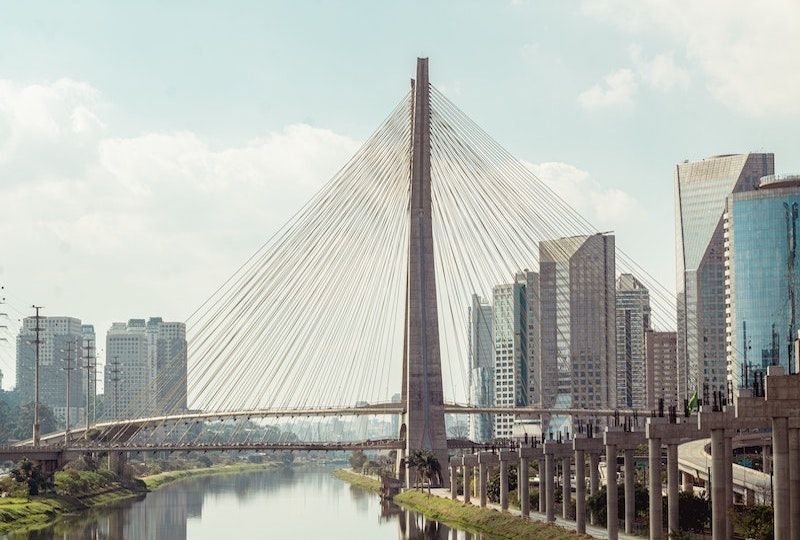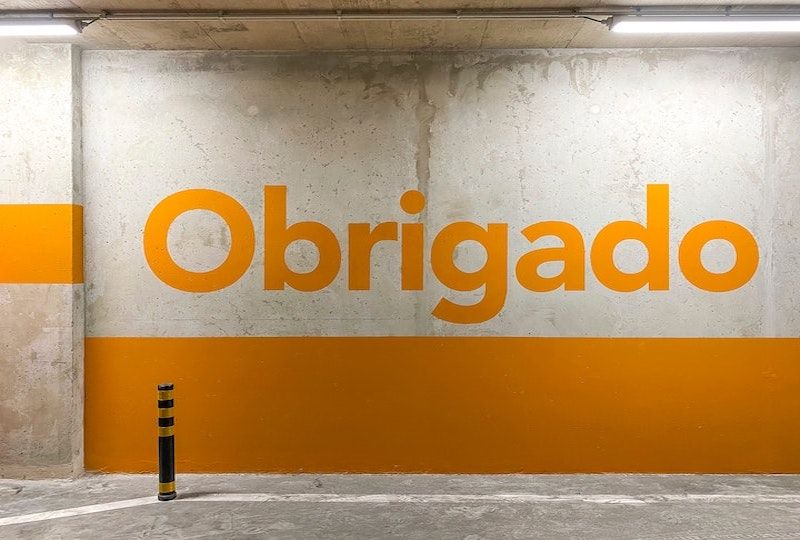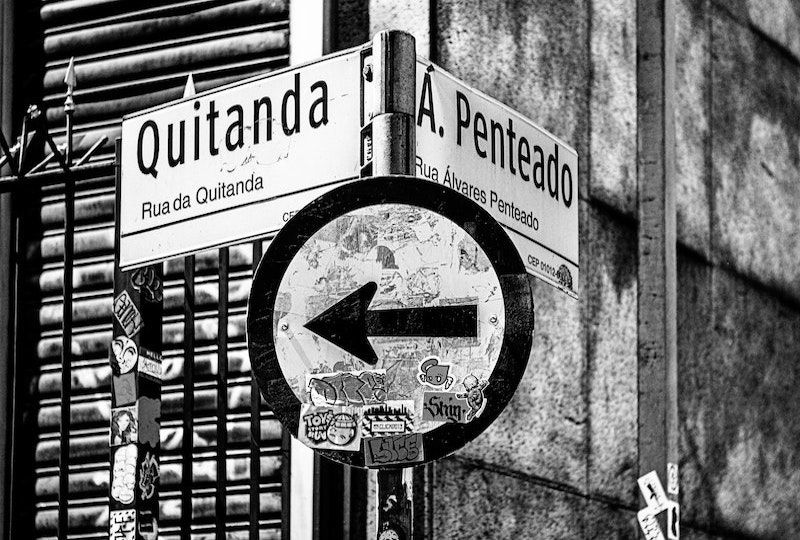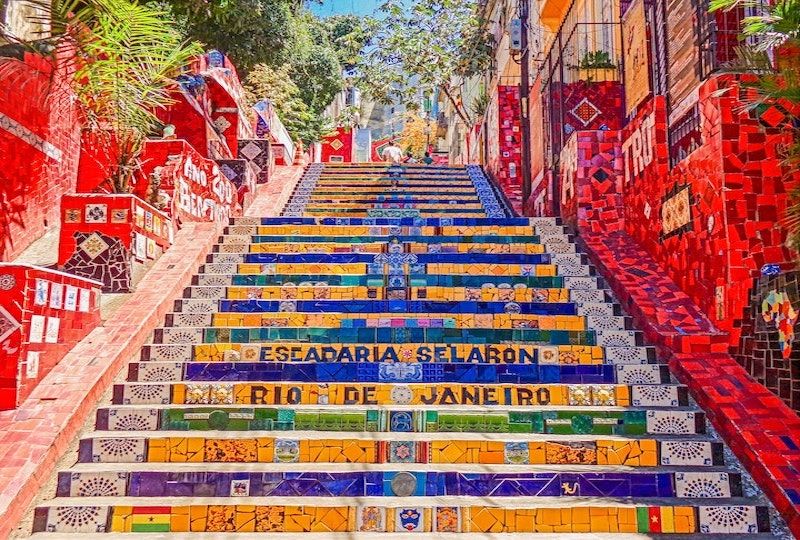101 Basic Portuguese Words for Travel in Brazil
Brazil is a country that’s rich in language and culture. This article teaches you some of the most common and basic words and phrases in Portuguese so that you can make the most out of your trip.

With approximately 1.35 billion English speakers worldwide, it’s easy to assume that there will be people who speak English in any foreign country you travel to. After all, English is the universal language, isn’t it? But it may surprise you to learn that this is not always the case. There are many instances when locals of the foreign country you are visiting can’t speak English at all. That’s why it’s better to be prepared when you travel.

Basic Words That Any Portuguese Language Learners Must Know
Brazil is a wonderful country; not only is it full of beautiful nature, impressive sandy beaches, and other attractions, but it is also a country that’s rich in language and culture. If you’re planning to travel there, it would be a great idea to learn some basic Portuguese words and phrases to help you get around and make the most of your trip. Below is compilation of basic Portuguese words and phrases that you can keep in your back pocket as you travel around (and if you're curious about how to properly pronounce words in Portuguese, refer to this Speechling article).

Basic Greetings
Many locals appreciate and love it when you try to at least greet them in their own language. When travelling and exploring around in Brazil, sometimes all it takes is a simple “Bom día” to put a smile on a local’s face.
1. Bom día: Good morning
2. Boa tarde: Good afternoon
3. Boa noite: Good night
4. Oí/Olá: Hello
5. Tchau: Goodbye
6. Até mais/logo: See you later/soon
Additionally, it never hurts to learn how to say “thank you” or “excuse me” in Portuguese.
7. Por favor: Please
8. De nada: You're welcome
9. Obrigado/a: Thank you
(Note: If you are male, you would say obrigado, and if you are a female, you would say obrigada.)
10. Sim: Yes
11. Não: No
12.Com licença: Excuse me
13.Desculpa: Sorry/ pardon me

Making Yourself Understood
Learning Portuguese, or any other language for that matter, is a journey that takes time and patience. Whether you’re an absolute beginner in Portuguese, advanced in the language, or know nothing at all, there will most likely come a point when a native speaker says something that you don’t understand. When that happens, you can always fall back on these simple phrases to make your point.
14. Você fala inglês? Do you speak English?
15. Falo um pouco de português. I speak a little bit of Portuguese
16. Eu não falo português (bem). I don’t speak Portuguese (well).
17. (Eu) Não sei. I don’t know.
18. Não entendo. I don’t understand.
19. Não entendi. Você pode repetir, por favor? I didn’t understand. Can you repeat that, please?

Introducing Yourself
Brazilians are known to be super friendly and social people. Why not make the most of your experience in Brazil by introducing yourself when meeting someone new? Below are some phrases to get a conversation started. Additionally, you could read the "Top 10 Conversational Topics to Learn Portuguese" article on Speechling's Portuguese blog to get more ideas.
20. Como está/vai? How are you/ How’s it going?
21. Estou bem, obrigado/a. I’m fine, thanks.
Alternatively, when someone asks you how you are doing, you can also quickly reply with “Tudo bem”, which means everything is going well.
22. Meu nome é... My name is...
A more formal way to introduce yourself is to say, “Me chamo...”
23. Cuál é o seu nome? What is your name?
If you’d like to be a little bit more formal you can ask, “Como se chama?”
24. Um prazer. A pleasure.
You can say this after meeting someone for the first time.
25. Prazer em conhecê-lo. It’s nice to meet you.
26. De ònde você ê? Where are you from?
27. Eu sou... I am...
a) do Canada. From Canada.
b) dos estados Unidos. From the United States.
c) da frança. From France.
d) da russía. From Russia.
e) do japāo. From Japan.
f) da africa do sul. From South Africa.

How to Ask Questions in Portuguese
Do you need to ask a local a question? Here are five ways you can start your questions.
28. Quem: Who?
29. Que: What?
30. Onde: Where?
31. Quando: When?
32. Por qûe: Why?

Counting in Portuguese
While it’s not necessary to know all the numbers in Portuguese, learning to count to at least the number 10 may be helpful for you as you shop, eat, and travel around in Brazil.
33. Um/uma: One
34. Dois/duas: Two
35. Três: Three
36. Quatro: Four
37. Cinco: Five
38. Seis: Six
39. Sete: Seven
40. Oito: Eight
41. Nove: Nine
42. Dez: Ten
43. Vinte: Twenty
44. Trinta: Thirty
45. Quarenta: Forty
46. Cinquenta: Fifty
47. Sessenta: Sixty
48. Setenta: Seventy
49. Oitenta: Eighty
50. Noventa: Ninety
51. Cem: One hundred
52. Cento e um/uma: One hundred and one
53. Cuanto custa?: How much does this cost?

At the Restaurant
Depending on the restaurant you end up eating at, English might not be an option for you. If that’s the case, it’s better to err on the side of caution and learn some useful phrases for ordering your meal.
54. Restaurante: Restaurant
55. Café da manhã: Breakfast
56. Almoço: Lunch
57. Jantar: Dinner
58. Eu gostaria de pedir/comer... I would like to order/eat...
59. Cerveja: Beer
60. Vinho tinto: Red wine
61. Vinho branco: White wine
62. Agua: Water
63. Suma: Juice
64. Chá: Tea
65. Café: Coffee
66. Sopa: Soup
67. Carne: Meat
68. Peixe: Fish
69. Pão: Bread
70. Queijo: Cheese
71. Sorvete: Ice cream
72. Chocolate: Chocolate
73. Onde fica este restuarante? Where is this restaurant?
74. Eu gostaria da conta, por favor. I would like the bill, please.

Transportation, Accommodations, and Directions
Did you know that Brazil is the fifth largest country in the world? With that being said, getting around in Brazil is not always easy. In larger cities, like São Paulo and Rio de Janeiro, there are taxis, buses, metro stations, and major international airports you can use as a means of transportation to get to where you need to go, but in smaller communities, you’ll be limited to fewer options. In any case, some basic vocabulary may go a long way for you.
75. Ônibus: Bus
76. Táxi: Taxi
77. Tren: Train
78. Aviaõ: Airplane
79. Bilhete: Ticket
80. Um bilhete, por favor. One ticket, please.
81. Para onde vai esse ônibus? Where does this bus go?
82. A que horas? At what time?
83. Hotel: Hotel
84. Hostel: Hostel
85. A Praia: The beach
86. A loja: The store
87. Onde fica este hotel/hostel? Where is this hotel/hostel?
88. Siga em frente: Go straight ahead
89. Vire a direita: Turn right
90. Vire a esquerda: Turn left
91. Rua: Street
92. Avenida: Avenue
93. Qual é a distância? How far is it?
94. É muito longe? Is it far from here?

Asking for Help in Portuguese
We all need some help from time to time. If you find yourself in a situation where you are lost, need help, or in an emergency, it’s always handy to know how to express yourself in Portuguese.
95. Por favor, me ajude. Eu estou perdido/a. Please help me. I am lost.
96. Eu sou um turista. I’m a tourist.
97. Onde está... Where is...
a) Minha carteira? My wallet?
b) Meu passaporte? My passport?
98. Estou perdido/a... I’ve lost my...
a) Minha carteira. My wallet.
b) Meu passaporte. My passport.
99. Chame uma ambulância! Call an ambulance!
100.Chame a polícia! Call the police!
101.Eu preciso de um/uma... I need a...
a) Táxi: Taxi
b) Mapa: Map

Learn Portuguese While Traveling in Brazil
And there you have it!
Ultimately, language plays a big role in culture. Learning Portuguese will not only help you to travel around in Brazil, but it will also allow you to experience Brazilian culture firsthand. Brazilians are generally very expressive when they talk, which adds a certain dynamic dimension to their culture. We want to encourage you to get the most out of your experience in Brazil by taking your Portuguese to the next level with one of our Speechling tools. In doing so, you’ll be able to experience a whole new side of Brazilian culture and be able to connect with the locals in a deeper way. Who knows: maybe these basic starter phrases will inspire you to learn Portuguese so you can speak it fluently the next time you visit Brazil!
